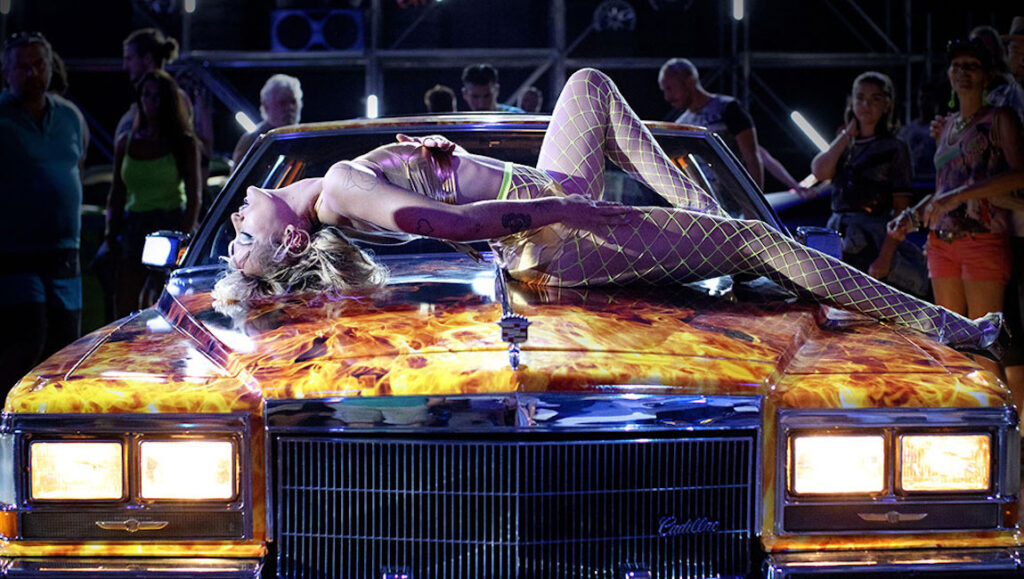#12. Oft-explained as an homage to the mechanical body horror of David Cronenberg, Julia Ducournau‘s surprise Palme d’Or winning follow-up to Raw is too often defined by its wildfire reputation. Where Raw showed how fine the line between woman and animal was, Titane charts the kinetic exploration of masculinity’s performative nature, swirling in the gray space between man and machine. Ecstasy is at its heart, whether in the inky fluid that leaks from a round of hands on a hard (hot?) body, or in the machinations of men allowing themselves the reprieve of dancing, just for one night. Sex, violence, violent car sex — we’ve seen that before, so what’s new here?
While the introduction to our year in review may have, like many, referred to it as the “Frenchwoman fucks a car!” movie, what’s far more interesting is the loosening traditional structure of family. The relationship between Vincent Lindon’s father and our protagonist is one of surrogate fatherhood, sure, but it is also a second chance. A photo of Vincent’s missing son in a dress is a realization that Agathe Rousselle’s androgynous runaway hardly needs to hide an ever-expanding belly. Fatherly love isn’t conditional on blood, but on guilt — guilt at not having done his last child right. Rousselle is stellar in and out of disguise, playing to both the physicality and ensuing steely vengeance of alienated erotic dancer Alexia, as well as undercover, stoic, guarded Adrien. Androgyny is less a tool for literalism, existing here to construct a binary of how violence is received in gendered constructs; though the mechanizations of the pregnant body are taken literally, its symptoms melding with those of a malfunctioning machine. In a way, Titane can hardly be termed a transgressive film, given that its gritty, grotesque body horror (which some less accustomed audiences claim made them faint) functions more potently as a twisted realism, and this precisely because the body is not a genre trick for scares, but a fact of life.


Comments are closed.